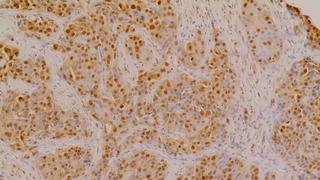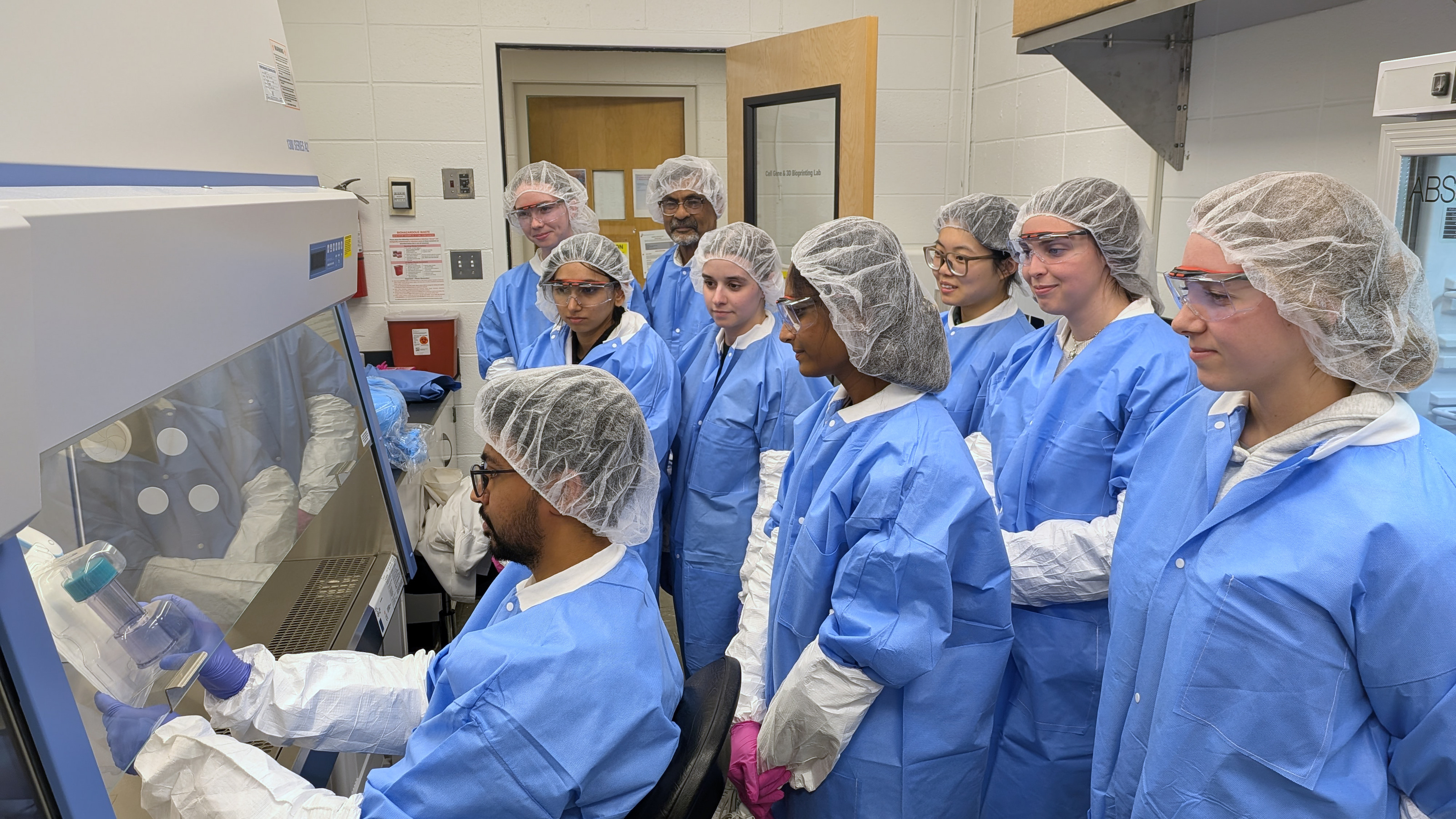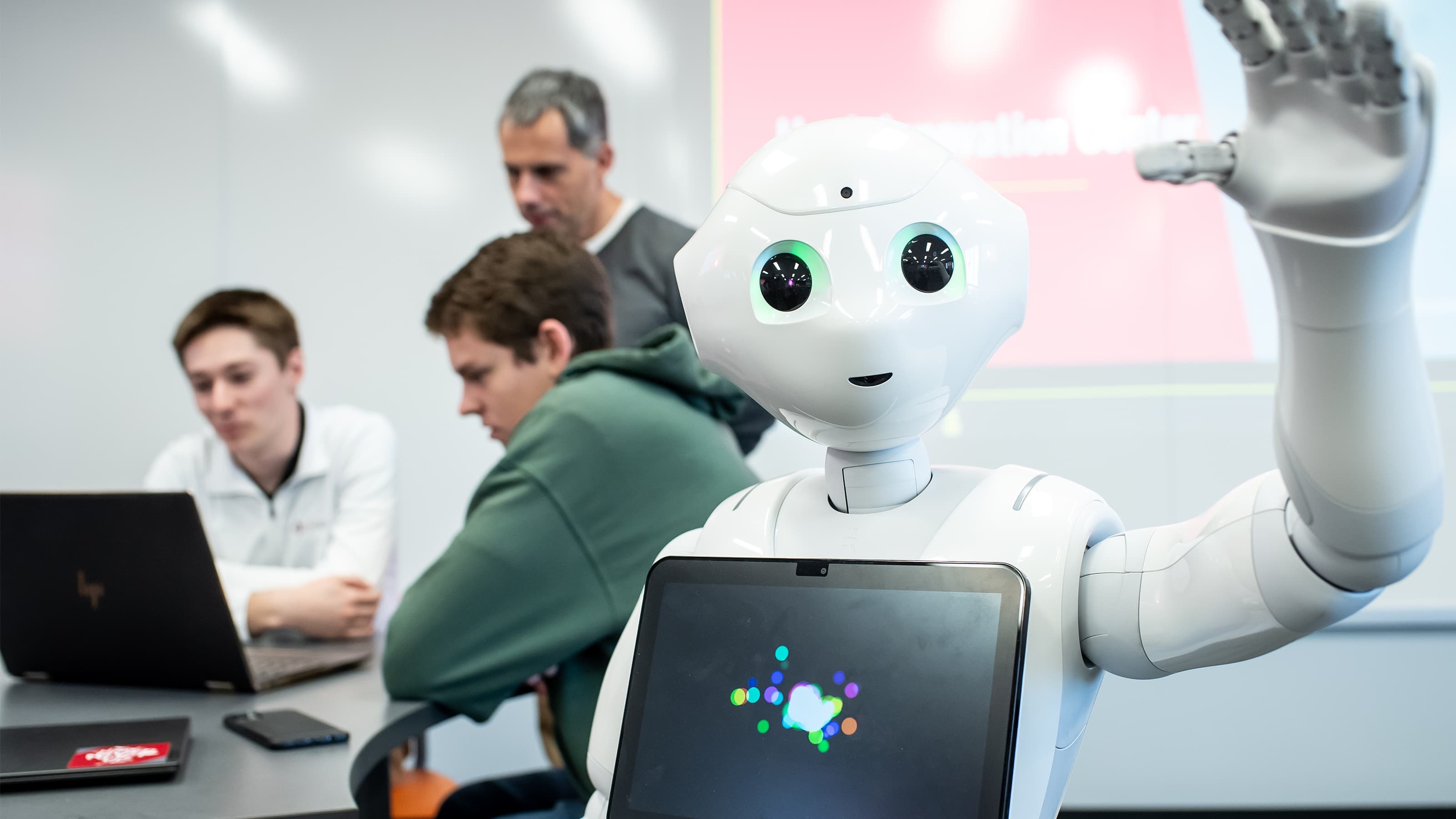Faculty Receive Funding from National Cancer Institute to Uncover Novel Targeted Treatments for Aggressive Breast Cancers
The NIH R15 research grant will enable pharmaceutical sciences faculty Isabelle Mercier, PhD, and Jean-Francois Jasmin, PhD, and Saint Joseph’s students to study targeted therapies that could treat triple-negative breast cancer.
 CAPER-strained, triple-negative breast cancer tissues
CAPER-strained, triple-negative breast cancer tissues
Triple-negative breast cancer (TNBC) is an aggressive form of cancer that disproportionately affects women of color. Prognosis for TNBC is the poorest among all types of breast cancers, and traditional treatment options such as radiation therapy, surgery and chemotherapy carry risks to patients, including cancer recurrence, unintended eradication of healthy cells and adverse physical side effects.
Isabelle Mercier, PhD, chair and associate professor of pharmaceutical sciences, and Jean-Francois Jasmin, PhD, associate professor of pharmaceutical sciences, and associate provost for research and graduate administration and policy, have been studying breast cancers and the molecular mechanisms associated with them for more than a decade.
The two Saint Joseph’s University faculty members were recently awarded a three-year, $435,000 R15 grant from the National Institutes of Health’s (NIH) National Cancer Institute to study a protein called CAPER (RBM39) that will allow for a more targeted treatment option.
“What we are working on in the lab is biomarker discovery, in this case, identifying something inside the tumor that makes it grow quickly,” explains Mercier. “The biomarker we identified in triple-negative breast cancer is a protein called CAPER, which makes the cancer cells grow fast and aggressively. Our study proposes to remove the protein from within the tumor, study it in preclinical studies to see how the tumor responds over time and in combination with traditional therapies.”
Mercier and Jasmin first identified this protein in a less-aggressive type of cancer and are using this research grant to explore options for patients who are in dire need of effective targeted therapies. The grant will also give them the opportunity to train Saint Joseph’s students to work in the biomedical and pharmaceutical industries and potentially become scientists themselves.
R15 research grants are designed to expose students to research, strengthen an institution’s research environment and support meritorious projects.
“Students are crucial to the research mission of the University. These types of studies wouldn't be possible without the involvement of undergraduate and graduate students,” says Jasmin. It’s a two-way street, he adds. “Hands-on research strengthens their problem-solving, communication and leadership skills. It’s been proven time and time again that when you practice something hands-on, it helps you better understand concepts in the classroom.”
These types of studies wouldn't be possible without the involvement of undergraduate and graduate students.
Jean-Francois Jasmin, PhD
Associate Professor of Pharmaceutical Sciences, and Associate Provost for Research and Graduate Administration and PolicyTheir work isn’t just about the science, Mercier emphasizes, it’s also about patients who might be impacted by the science.
“On the other side, there’s a patient, a mom, a sister, a grandma who’s going through this journey and their life might end with this very aggressive cancer. It’s our job as professors and researchers to teach our students empathy and to be well-rounded scientists,” she says, explaining that students frequently participate in breast cancer events and interact with survivors to understand the impact of their work.
Over the next several years, Mercier and Jasmin aim to publish their results in high-impact journals with the goal of garnering additional funding to pursue more research and, ultimately, having a positive impact on patients’ lives.
“It’s about building reputation amongst your peers, attracting the best and brightest students and faculty to the institution, and expanding the reach of our research,” says Jasmin.
While it’s still early, their work with the CAPER protein could be used to treat other types of aggressive cancers, including brain, lung, pancreatic and ovarian cancers.



